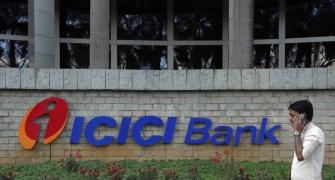- MV Rao
Growth and value are strategies to invest in stocks. Growth stocks are ones for optimists. Typically, they are expected to grow faster than others. Such stocks command a higher price. Value stocks, on the other hand, are undervalued and have a potential for long-term capital appreciation. Such stocks, often, are not in the limelight of the investing community. However, an investor, who is not looking to make quick gains, it is an ideal option. The best strategy would be to have a proper mix of both growth and value stocks.
Will the fund house charge a trailing commission, if a person makes direct investments with the Asset Management Company (AMC) and not through an agent? Also, how is the expense ration shown in the account statement? If I invest directly, does the expense ratio affect me?
- Satish Sutaria
When you invest directly and do not introduce any agent, then no trail commission is paid out of the AMC's income. It is charged from the scheme on a pooled basis. So, the trail commission saved on your direct investment benefits all investors in the fund.
Coming to your other query on expense ratio; it is not mentioned in the account statement. Expense ratio includes the fees and expenses for operating a scheme. It is deducted from the corpus and adjusted in the Net Asset Value (NAV) on daily basis. Whether you invest directly or through an intermediary, the expense ratio remains unchanged.
Market regulator, Sebi, has laid down a framework for charging the recurring expenses. For equity funds, on the first Rs 100 crore (Rs 1 billion) of the scheme's weekly average net assets, a maximum of 2.5 per cent can be charged. On the next Rs 300 crore (Rs 3 billion), the charge will not exceed 2.25 per cent. On the next Rs 300 crore (Rs 3 billion), a maximum of 2 per cent can be charged while on the balance, the upper limit is fixed at 1.75 per cent.
Recently, I read a report on mutual fund frauds. It said that the best way to guard against frauds is to approach all financial intermediaries with a healthy distrust and make sure that the investor has third-party proof of all transactions. I would like to know who the third-party proof providers are for investments in Fixed Maturity Plans (FMPs), income and gilt funds.
- Ramnik Shah
There are no third-party proof providers. When you place an order with a broker, you must check your demat account independently. When you transact, you must check properly whether it has been carried out correctly as per your instructions.
In case of funds, a custodian holds and safeguards securities that are owned by all the fund's investors. This structure ensures that the securities are held by a third party who is responsible for maintaining them safely. Hence, this removes the risk of dishonest activity by separating the fund managers from the physical securities and investor records.
I had purchased the Reliance Natural Resources Fund during its New Fund Offering in January 2008 for Rs 10,000. At that time, they deducted an entry load of 2.25 per cent. However, I heard that there will be no entry load on the scheme. Why was I charged then?
-Ashok Kumar
The entry load in Reliance Natural Resources Fund for any investment below Rs 2 crore is 2.25 per cent. An entry load is not deducted for any fund when an investor invests directly, that is, without any intermediary. If you had invested through a broker, then the load is applicable. Else, the fund cannot charge you the entry load.
If I purchase additional units in an Equity Linked Savings Scheme (ELSS), is it compulsory to keep it for another three years from the date of purchase?
-J Sivaramaprasad
Yes, if you purchase additional units in an ELSS, you will be required to keep the additional units for three years from the date of purchase. However, the units that you would have bought previously can be redeemed after holding these units for three years.
I want to understand how an Exchange-Traded Fund (ETF) functions? How does an AMC benefit when a fund is traded on the stock exchange? Also, how is the NAV declared?
-Ashish Ahuja
An ETF is like an index fund in terms of its portfolio. The basket of stocks is in the same proportion as the pre-decided index. The fund purchases the basket of stocks with the money collected from initial investors and distributes the units. These units are then traded on the stock exchange through stock brokers. Investors who wish to take up units of an ETF require a demat account.
The price of an ETF fluctuates with the fluctuation in the underlying index throughout the trading day. The NAV is usually a fraction of the value of the index, like one-tenth or one-hundredth. But the value at which it is traded is a function of its demand and supply. So, ETF units can trade at premium or at discount.
The benefit of an ETF to an AMC is more or less the same as it would be in case of any other mutual fund. But since it tracks an index, it doesn't require active management of the underlying portfolio.







